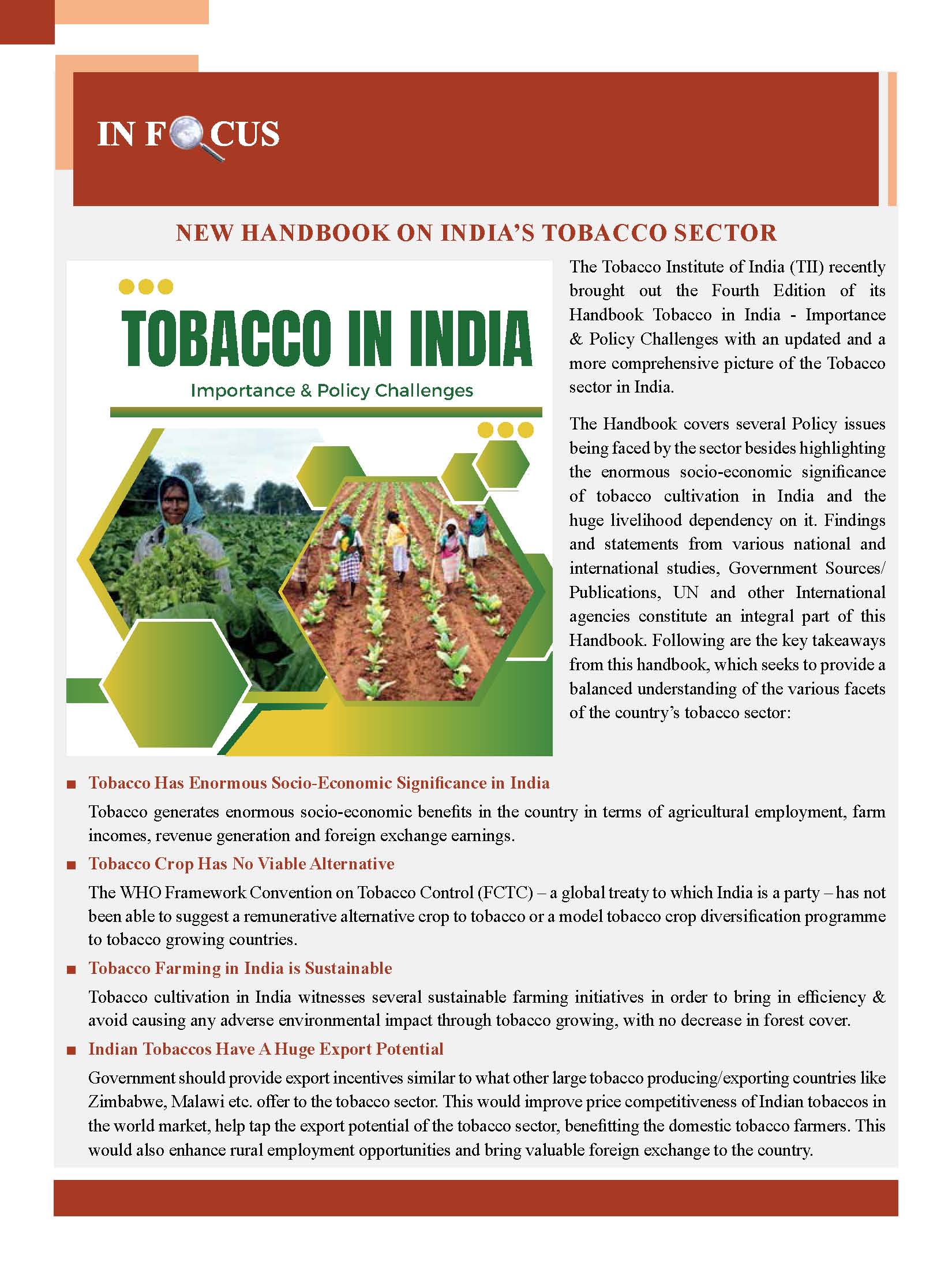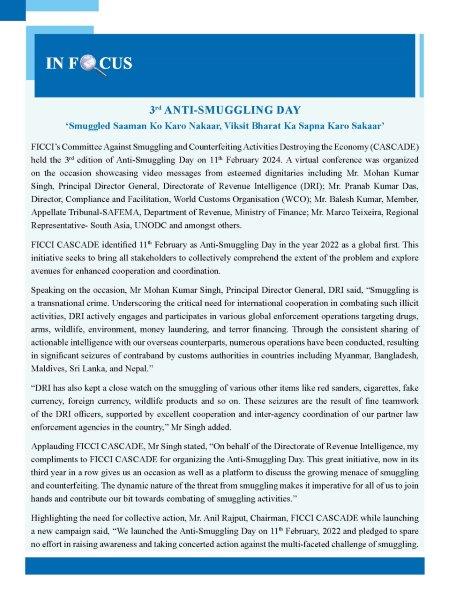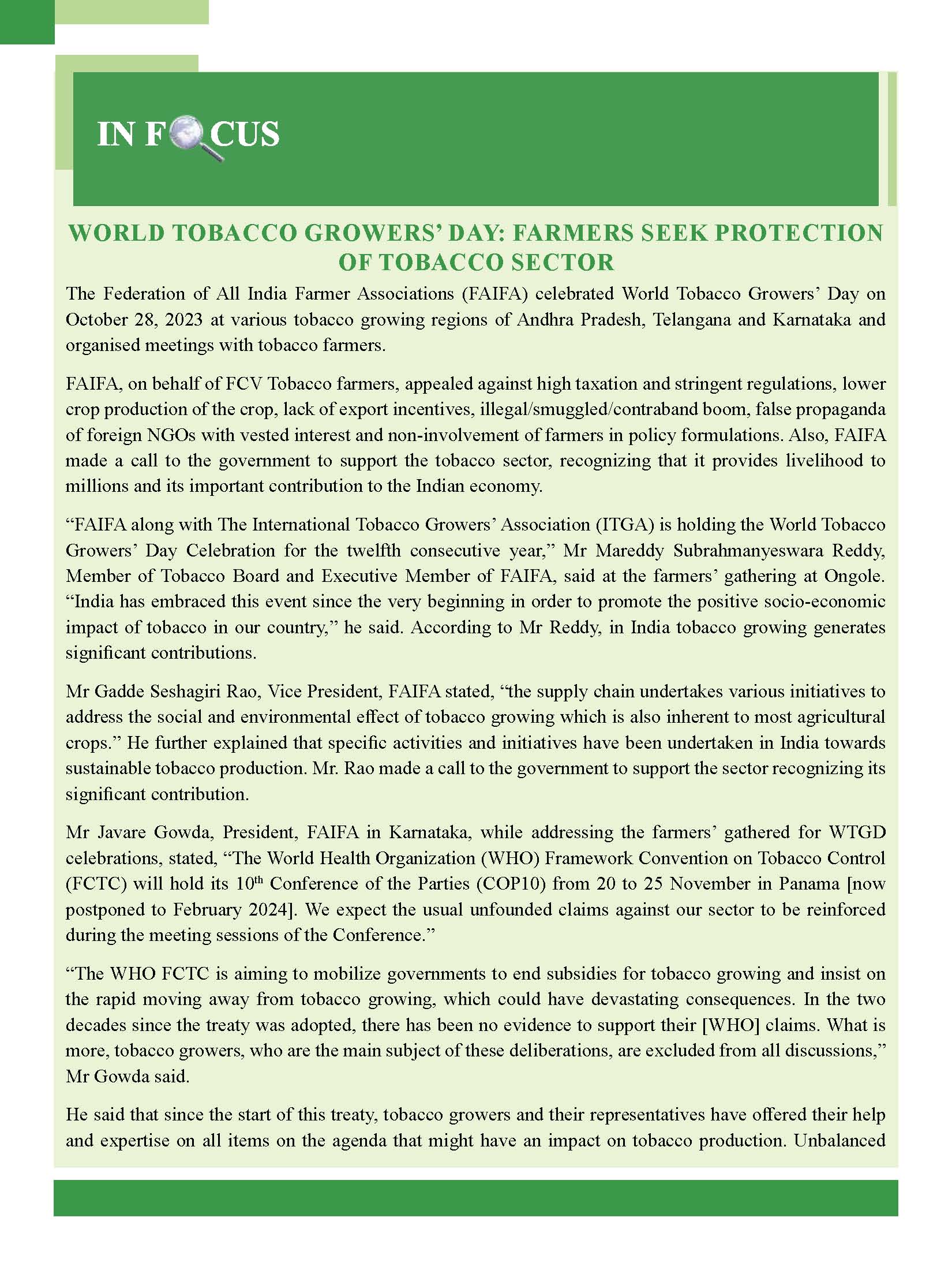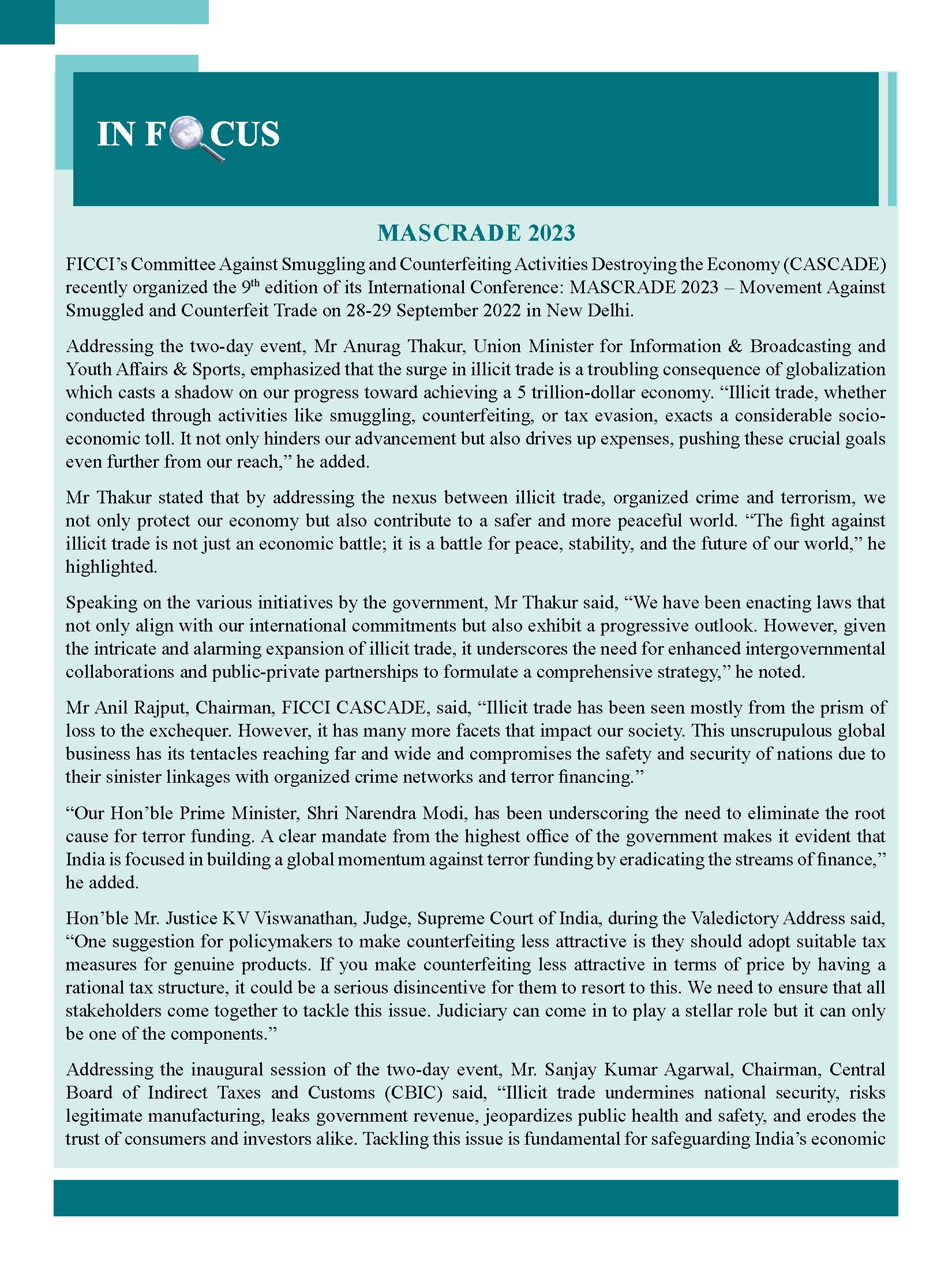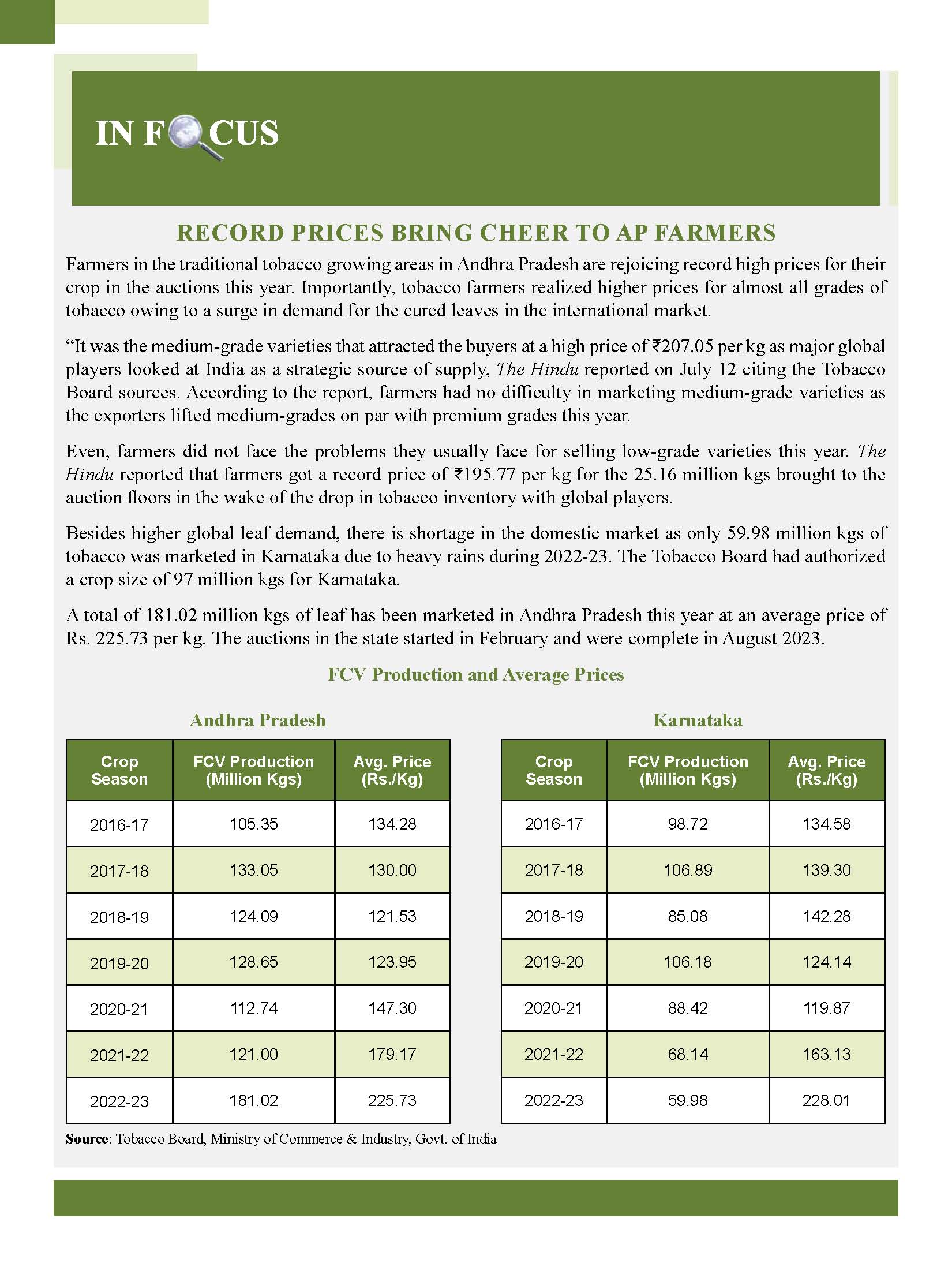Illegal Cigarette trade comprising international smuggled and locally manufactured tax-evaded cigarettes accounts for as much as 1/4th of the Cigarette Market in India. It is estimated that the Government loses Rs. 21,000 crores per annum on account of illegal cigarette trade. Read TII Handbook on Illegal Cigarette Trade
Extremely high and constantly increasing tax rates on Cigarettes provide a profitable opportunity for tax evasion by illegal trade in both international smuggled and domestic tax evaded cigarettes. The escalating and unprecedented tax burden on Legal Cigarettes had more than trebled between 2012 and 2020 as a consequence of successive increases in taxation.
Further, extreme regulations such as Pictorial Health Warnings provide further encouragement to the illegal cigarette trade in India, as illegal cigarettes do not comply with tobacco control regulation of the Government.
According to the recent data released by Euromonitor International, illicit cigarette volumes have reached 33.2 billion sticks in 2023. This has made India the 4th largest illicit market (by volume) in the world. Illicit cigarettes currently account for 26.1% of the Indian cigarette market.
Source: Euromonitor International, 2024
The availability of International Smuggled Cigarettes has spread all over the country as retailers benefit enormously by pushing sales of these cigarettes due to higher trade margins as these Cigarettes are offered to retailers at extremely low prices compared to Indian manufacture. Illegal cigarettes are sold cheap due to tax evasion affording a huge arbitrage opportunity. Availability of these products spreads across urban as well as rural markets – in metros they are almost universally available. Smuggled Cigarettes are particularly popular among youth as they carry International Brand names and are cheaper than Indian brands. These smuggled cigarettes also do not carry the mandated pictorial warnings.
Another aspect of illegal trade in cigarettes is the large and growing segment of low price domestic tax-evaded cigarettes.
Unscrupulous manufacturers, lured by the huge arbitrage opportunity, have set up units by exploiting the provisions in the I(D&R) Act, 1951. Products from these units are available in the market at Rs.2 per stick (filter cigarette) which is even lower than the applicable tax rates, only possible if taxes are evaded.
Constant increase in tax rates has rendered the legal industry unable to counter the growing illegal Rs.2 filter cigarettes. This has put the legal cigarette industry at a severe disadvantage while enabling a much higher arbitrage opportunity to the illegal operators. Illegal cigarettes are readily available at marketplaces, paan shops and hawkers’ stalls across the country.
Illegal trade seriously undermines the social objectives of tobacco control through the availability of tobacco products at extremely low prices which are also of suspect quality, manufactured under unhygienic conditions.
By not adhering to Regulations such as the Pictorial warnings, illegal cigarettes undermine the tobacco control policies of the Government and deliberately create the impression that these products are safer. In the absence of mandated warnings and other statutory requirements on packaging Illegal cigarettes are easily identifiable at selling outlets.
The illegal cigarette trade is in the hands of organized criminal syndicates and terror groups, both enemies of our country. It has been determined, among others by the US Department of Homeland Security, that profits from cigarette smuggling have been used to fund criminal and terrorist activities that pose a huge threat to National Security. The head of the WHO FCTC Secretariat, Dr. Adriana Blanco Marquizo, has also acknowledged the serious threat posed by the illicit cigarette trade.
Another undesirable outcome of the growth of illegal trade is that it would further undermine the tobacco control policies of the government and affects farmer earnings. Since contraband products do not use local tobaccos any increase in illegal trade will also impact the livelihood of tobacco farmers in the country as demand for domestic tobaccos will reduce further.
Growing Incidence of Seizures of Illegal Cigarettes
In the recent past, there have been various instances of seizure of illicit cigarettes particularly in the North Eastern part of the country, especially through the porous borders along the Indo Myanmar border. The Indian Government has taken a serious view of the growing illicit cigarette trade and in the past few years, enforcement agencies have made focused efforts to seize illicit cigarette stocks across the country.
Over the past few years, the media has reported several cases of evasion of taxes/duties by dealers in illicit cigarettes which came to light because of raids conducted by Directorate General of GST Intelligence (DGGI).
It is important to note that the reported seizures are only the tip of the gigantic iceberg of a much larger operation. In fact, for every such seizure, multiple consignments escape the surveillance net, due to the overwhelming volumes involved, despite the best efforts of the enforcement authorities. This is evidenced by the widespread availability and universal presence of smuggled cigarettes across markets.









